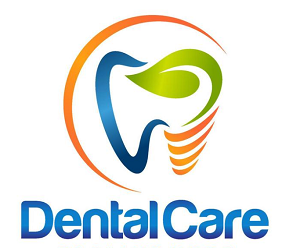22 Sep, 2022 | Edward Bramston | No Comments
The Role of Vitamin D in Preventing Dental Cavities
Introduction
Vitamin D is an essential nutrient that plays a crucial role in maintaining overall health. While it is well-known for its role in bone health, recent research has also highlighted its importance in preventing dental cavities. This article explores the relationship between vitamin D and dental health, shedding light on how this nutrient can help in preventing cavities.
The Importance of Dental Health
Dental health is not just limited to having a bright smile; it is an integral part of overall well-being. Poor oral health can lead to various dental problems, including cavities, gum disease, and tooth loss. Dental cavities, also known as dental caries or tooth decay, are one of the most common oral health issues affecting people of all ages.
Understanding Dental Cavities
Dental cavities occur when the enamel, the protective outer layer of the tooth, gets damaged due to the acids produced by bacteria in the mouth. This acid attack weakens the enamel, leading to the formation of cavities. If left untreated, cavities can progress and cause pain, infection, and even tooth loss.
The Role of Vitamin D
Vitamin D is a fat-soluble vitamin that is primarily obtained through exposure to sunlight and certain dietary sources. It plays a crucial role in maintaining healthy teeth and gums. Here’s how vitamin D helps in preventing dental cavities:
1. Enhances Calcium Absorption
Vitamin D aids in the absorption of calcium, a mineral essential for strong teeth and bones. It helps the body utilize calcium effectively, ensuring that it is properly deposited in the teeth, making them more resistant to decay.
2. Strengthens Tooth Enamel
Vitamin D promotes the production of antimicrobial peptides in the oral cavity. These peptides help in fighting off harmful bacteria that can cause tooth decay. Additionally, vitamin D helps in the remineralization of tooth enamel, making it stronger and more resistant to acid attacks.
3. Reduces Inflammation

Research suggests that vitamin D has anti-inflammatory properties, which can help in reducing inflammation in the gums. Inflammation in the gums can lead to gum disease.
Summary
Vitamin D has been found to have a protective effect against dental cavities. It helps in the absorption of calcium and phosphate, which are essential minerals for maintaining strong teeth. Vitamin D also aids in the production of antimicrobial peptides that can help fight off harmful bacteria in the mouth. Studies have shown that individuals with low levels of vitamin D are more prone to developing dental cavities. Therefore, ensuring an adequate intake of vitamin D through sunlight exposure, diet, or supplements can contribute to the prevention of dental cavities. Incorporating vitamin D-rich foods such as fatty fish, fortified dairy products, and egg yolks into the diet can be beneficial for maintaining optimal oral health. Additionally, regular dental check-ups and practicing good oral hygiene habits, such as brushing and flossing, are essential for preventing dental cavities. By understanding the role of vita useful link min D and taking appropriate measures, individuals can significantly reduce their risk of developing dental cavities and maintain a healthy smile.
- Q: What is the role of Vitamin D in preventing dental cavities?
- A: Vitamin D plays a crucial role in preventing dental cavities by promoting the absorption of calcium and phosphate, which are essential for maintaining strong teeth and preventing tooth decay.
- Q: How does Vitamin D promote the absorption of calcium and phosphate?
- A: Vitamin D helps regulate the levels of calcium and phosphate in the body, ensuring that they are properly absorbed from the diet and utilized by the teeth to maintain their strength and integrity.
- Q: Can a Vitamin D deficiency lead to dental cavities?
- A: Yes, a deficiency in Vitamin D can increase the risk of dental cavities as it impairs the absorption of calcium and phosphate, leading to weakened tooth enamel and a higher susceptibility to tooth decay.
- Q: How can I increase my Vitamin D levels to prevent dental cavities?
- A: You can increase your Vitamin D levels by spending time in the sun, consuming Vitamin D-rich foods such as fatty fish, fortified dairy products, and egg yolks, or by taking Vitamin D supplements as recommended by your healthcare provider.
- Q: Are there any other benefits of Vitamin D for dental health?
- A: Yes, apart from preventing dental cavities, Vitamin D also helps in reducing inflammation of the gums, preventing gum disease, and promoting overall oral health.

Welcome to my website! My name is Edward Bramston, and I am a dedicated Dental Anesthesiologist with a passion for providing exceptional care to patients of all ages. With years of experience in the field, I have developed a deep understanding of the importance of dental emergencies, children’s dentistry, and nutrition for oral health.
